Nigeria Diaspora Investment Summit Coordinator, and Chairman, Board of Trustees, Dr. Badewa Adejugbe-Williams, in this interview, speaks on the successes and challenges of hosting the event since 2018. She stressed the need for small and medium business owners to take advantage of subsequent pitching sessions at NDIS, saying investors are eagerly waiting to be of help to their businesses.
The Founder/Educational Therapist at Royal School of Educational Therapy Foundation also spoke on why children with special needs must not be hidden but equipped for a future possibly without their parents.
What are the takeaways from Nigeria Diaspora Investment Summit 2023?
Overwhelming. When we started this project in 2018, we just wanted to help diaspora businesses and small businesses that are in Nigeria. We thought we could help maybe a hundred small, unique, different projects but now hundreds have been helped. One of those who spoke, Ms Taiwo was a beneficiary, if not for NDIS, she would not be doing the documentary she’s doing today. So many impacts, so many people’s lives have been changed. There’s a group in Saudi Arabia, they came in 2018, they said before then, nobody knew who they were. Now they are holding investment summits with Arab investors to come invest in Nigeria. They were actually supposed to be in NDIS2023 with their investors from Saudi Arabia if not for the Saudi-Africa Summit, which coincided with ours, but they’re committed to bringing these investors to subsequent NDIS.
Some of our pitchers have been taken up by companies in the United States through financial fundraising, and mentorship. People have expanded their businesses, unbelievably Quebec foods is a big success story from NDIS and he was only here once. A lot of people keep coming back, Mr Ayoola is back from Poland, he’s been coming back every single year and that’s because of the impact NDIS has had on his life and business. So we’re overwhelmed and we’re grateful.
Our goal is to help the common man, those ones that maybe all they need is $5,000 or maybe even N100,000, no matter how small or how big. These are the people that the banks do not give loans to but there are people with social consciousness, who want to help them as fellow Nigerians. They have that emotional connection. And what we are saying is that stop sending money home just for birthdays or weddings or school fees, send money home to invest in businesses so that the profit from the businesses will now pay for the birthdays and the school fees and all that. So let’s capture the remittances in a useful way. And we’re so happy it’s been done.
People are unaware that the investors are in that room, they are online. You saw one of us, Dr Kazeem Bello representing over 6000 international investors. So even though you don’t see 6000 investors physically present, there are 6,000 people waiting for these pitchers.
Dr. Chris Brooks, the Co-Founder and Managing partner of the Brown Venture Group in the US, who came last year, is an American but he traced his roots to Nigeria and is committed to expanding his business here. As the summit was on, he was on a flight to Nigeria. His flight was delayed and he had issues and that’s why he was not at the summit. He came last year and has taken up some of those that pitched and now he’s bringing another one. I told him if you come now, the summit would have been over but he said it’s okay ‘I will watch what you record so that we can make decisions’. I really am so overwhelmed. I saw so many deals being made already, so many connections, so many commitments and it’s beyond words.
You have talked so much about the success stories, what are the challenges?
First of all, look how far we have come. We’ve benefited, we are partnering with the government and that has been very helpful. But there was one thing, there was a hitch as a result of the strike by the Labour Unions. Despite the hitch though, positive things came out of it. The challenge of the labour union blocking the venue of the summit, even though it was a challenge, their action is something we actually support as well. We support their causes because it’s about creating jobs. You know, unfortunately I’m not really aware of what the strike is all about but we want to support them, it is the labour unions and the labourers we are advocating for, we are supporting what they are agitating for with the summit although we have different missions. So even though it (strike) was a challenge, it’s also positive because something good is going to come out of it. At least, the diasporas present at the summit heard their stories and they are more committed to helping. So that is one of the challenges that has become positive. I always believed that if there’s a challenge there’s always a way out. So is for us to just come to the table and figure a way out.
Another challenge sometimes is funding, sponsorship. When we don’t have enough sponsorship, those of us in the committee put our money together to make sure that the Summit becomes a success. So we need more sponsors. This is a definite thing we are seeking. And a lot of companies you know, they know the advantage of it, and that is why they keep coming back to help support us but you know, minute here, minute there, it adds up, it helps a lot. This year, we were fortunate there were major sponsors but for how long? It has to be sustainable.
So we need to reach out to organisations to come and sponsor NDIS. We need the businesses in Nigeria, those big corporations in Nigeria that have the means that can actually fund some of these businesses to do so, you don’t have to necessarily be from the diaspora. We want a local private sector in Nigeria to also look at these MSMEs and take some up and fund them or even just giving technical advice we will appreciate that.
What’s your advice to the government and those in the diaspora?
We need an enabling environment. We keep saying that. People ask what is an enabling environment? We need people to be able to come to Nigeria and invest and know that they’ll be able to get their funds out. The reason we target Nigerians to come and invest in Nigeria is because we want that currency to remain within Nigeria. So if they’re investing in MSMEs, the profit coming to them, we want it to spread to their family members, you know, instead of the money being taken out. So we need that support. We need laws and policies. And I have to say you know the government since we started, have been very supportive in creating policies to enable this to happen. Former vice president Yemi Osinbanjo, in one of the summits made a promise on ease of doing business and on the basis of that some businesses actually came to Nigeria and established and with the support of NIDCOM and all the parastatals and all those that we’re partnering with like the Nigerian Investment Promotion Commission (NIPC), Nigerian Export Promotion Council (NEPC), even with Independent Corrupt Practices and Other Related Offences Commission (ICPC) to build trust, so that we can do due diligence on some of these pitches, as well as some of the investors so no one is taken advantage of.
So they’ve been supported that way so I cannot complain. But you know, we listen to what everyone says and we present them to the government and God bless her, Hon Abike Dabiri-Erewa, has taken every challenge and proceeded with it… some of the people who pitched because they needed something from government. She made a way possible and is being done. So I cannot complain. I cannot say the government is not doing something, they’re doing and it’s evidenced by some of the stories being told.
Everybody needs to do more, every government not just Nigeria, America, they need to do more. There’s homelessness spread out all over America now. Places that are supposed to be nicely built, you see people living in tents on the streets. So the government has to do more. We all have challenges but we need to localise ours and deal with ours and that’s the essence of the summit.
Many Nigerians are not as optimistic as you, so what’s your message to those that say the economy is stumbling, our currency is nothing to write home about etc?
I believe every nation has gone through this. Nothing is permanent, no nation has an upward swing with the economy, we will recover and with the promises that the government has made, with the way that the international community is supporting the current administration, with a hope that’s being generated, I would almost guarantee you that within a couple of years, we’ll see some amazing growth in our economy. I’m very optimistic. I’m not a politician.
You work with a couple of people all these years to put the summit together. How is it like managing a team to organise an event of this magnitude without rancour?
We’re a family now. We’ve known each other since forever, like from 2010 or thereabouts. We have our own different temperaments. We deal with each other. We fight but we love each other. You understand? It’s not like we fight as in fight you know. We have disagreements sometimes but everybody has the same vision. So even if you disagree with my viewpoint, let’s get others and we discuss together as a team. You saw two of us ladies wearing the same outfits, we call each other sisters although we are not related but we are like sisters and those men in the team are our brothers, we are very close.
So what do we look forward to next year at NDIS?
A better and bigger summit and of course, more pitches. Maybe instead of three days we could have maybe four days. The thing is we want to reach out to as many people as possible. And I want to encourage the pitchers don’t be afraid. Some of these people who are professionals train for free. Things they charge thousands of dollars or pounds for, they do it for free by training the pitchers. They (potential pitchers) need to come for training. Don’t be afraid because nobody is perfect. So they need to come and be rebranded. And we have some encouraging news from some of them as well. Some of the investors present at the summit already said they’re going to take them up and help them.
What does it cost to put a typical NDIS event together?
I can’t put a figure to it because everything has gone up. Okay, I know what it had cost in the past and it’s anywhere from N60 million or more. But you know the impact of it is what I can’t explain.
What do organisers of NDIS get in return from successful pitchers?
What we get in return is satisfaction that we added our quota. I’m not rich. I cannot be given money, but I can give what I can through my talents and that’s what all of us do, donate our time and we donate our money. This is our mission. You know, people have missions and the things they do, this is ours. We don’t get paid to do this. We put our own money to do this. We don’t get any financial benefit but we get satisfaction that we’ve done something. I want to go down to my grave and smile knowing that I really impacted people’s lives. And that’s the story we want to tell.
We don’t ask for returns. We just want them to be able to help others. The point of this is, you are empowered to empower others. Just pay it forward, that’s the message.
Why did you get emotional during the last pitch by Dr. Lancelot Imasuen, one of Nigeria’s best filmmakers, on the movie for children with special needs?
That’s my project. You know, life has a way of changing our pathway. When I started my university studies, I was meant to be an actress or filmmaker, that was my passion. And then you know, you have this plan but God has a different plan for you. So when I had my twin girls in 1992, who have intellectual disability, I was flawed. I was devastated. I’m somebody who aspires to be a perfectionist but when I now look within my own family, and I see imperfections I’m like, no, I cannot accept it. I have to do what I can do to help them.
I used to go to school with them to their classes, sit with them, and I saw their struggles. I was like, no, I have to understand what they are going through. So I went back to study education and special education so I could help my own children. And in essence, when I saw that my kids were getting better, I said let me help other kids in similar situations. So I shifted my career to education. And now having successfully…if I show you some of the text messages I’m getting from parents where I’m at in the US you will be amazed. I don’t want to toot my own horn but I’ve been able to make a change and I’ve done it successfully so I ask why can’t I do it in Nigeria?
So when I came to Nigeria, I brought my children with me, and I was looking for a school for them that can possibly deal with the situation. And then I gave a speech at the National Hospital for Autism Foundation, the doctors were coming to me after and saying we didn’t know that, what can we do, how can we advise our patients? And parents were coming to me and asking me what can we do? Do you have a school? I said no. I decided to take all this into consideration and I started raising awareness about children with special needs taking my children with me, as a way of telling the world don’t hide your children, mine are with me and I’m very proud of them. So we decided to start and I know it’s expensive to send your children to a special school. So we made it non profit.
The story I want to tell is that nobody is useless. Everybody has strength we just have to find it and build on it and that’s what we have been doing. And we want more and more families to bring their children out, let’s get them intervention that is the best thing you can do for them, give them a chance in life. So that when you are gone, they will not be a burden on somebody else.
So let’s teach them some kind of skills so they can earn something. And you know let them be part of the socio economic development of the nation. One of them that is a farmer is going to be able to harvest and sell and from there help somebody else. So the story is a child with disability has a future. So let’s just encourage parents to get our children out and you know, together, we you can help them.
By Juliana Taiwo-Obalonye

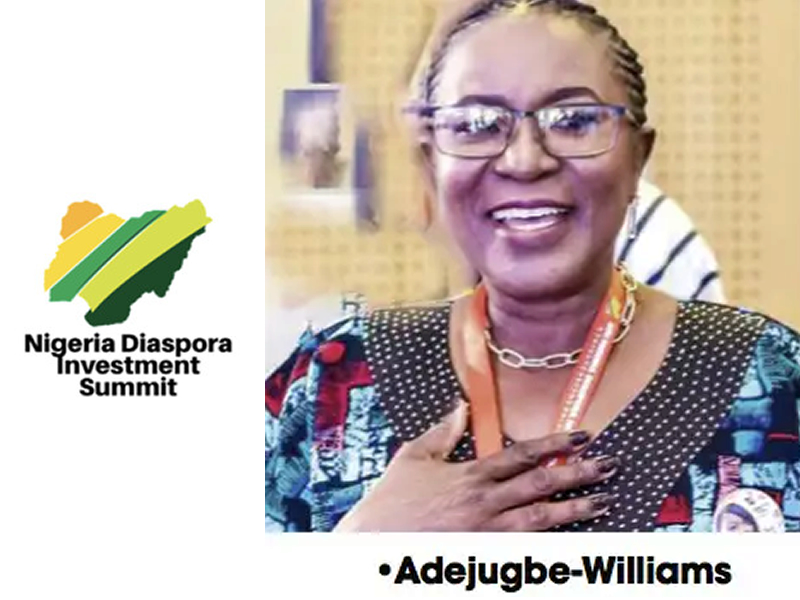
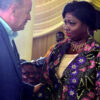
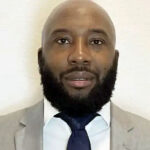
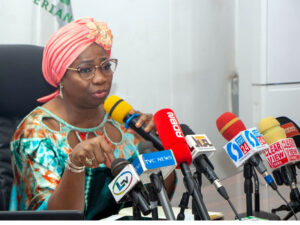
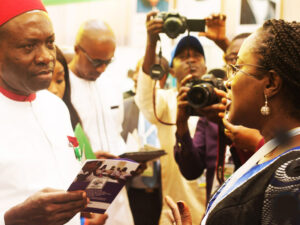
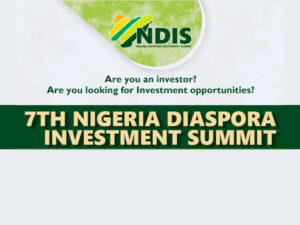


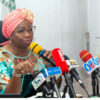
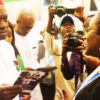


Leave a reply